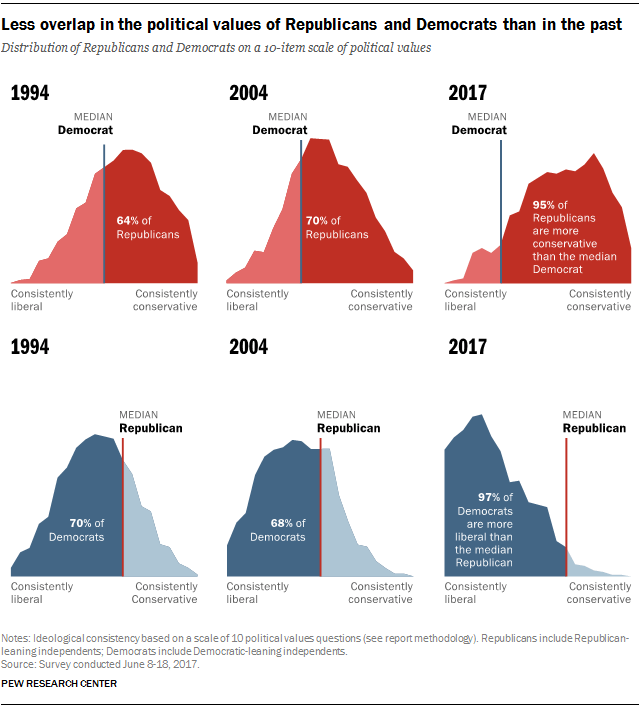By: David French – nationalreview.com – February 26, 2019
Imagining a doomsday scenario for our republic
I know what some of you are thinking. You read that headline and immediately think, “alarmist clickbait.” First, no one’s ending the filibuster — at least not anytime soon. Second, even if the next Democratic Senate destroys the filibuster, what’s the big deal? The Republicans will make the Democrats look as short-sighted as Harry Reid when he nuked the judicial filibuster. Both sides will get their free shot at legislation.
Yes, both sides will get their free shot, and that’s exactly the problem.
Let’s go back to the first question for a minute. Is there a chance that if a Democrat wins the White House in 2020, and the Democrats win a narrow majority in the Senate, they’ll attempt to repeal the legislative filibuster? Will the pressure to implement a triumphant progressive president’s agenda be so overwhelming that Democratic senators will feel they have no choice? After all, there’s no real path to single-payer or gun control or key aspects of the Green New Deal absent the “nuclear option.”
In fact, that’s the very argument Jamelle Bouie makes in today’s New York Times, in a piece urging Democratic presidential candidates to “come out against the filibuster.”
We are long past the days of large, bipartisan majorities for ambitious, far-reaching legislation. Just three Republican senators backed the 2009 stimulus and not one voted for the Affordable Care Act. Critics see this as evidence these laws were too liberal, but in truth it reflects structural change in American politics. The parties are polarized and ideologically coherent; they offer fundamentally different visions for the direction of the country. A President Booker or Klobuchar might seek Republican support for their agendas, but they won’t likely find it. The legislative path for their policies — to say nothing of a Green New Deal or universal child care — will go entirely through the Democratic Party.
Bouie notes that most of the Democratic contenders don’t favor filibuster repeal, but Elizabeth Warren has said that “all options are on the table” and Kamala Harris has said she is “conflicted.” The Times’ David Leonhardt used Bouie’s argument as a launching pad to explore the pros and cons of filibuster reform. We are now in the midst of a live debate.
Let me begin by concurring with Bouie. Here we share an agreed upon set of facts, at least. Absent filibuster reform (or an unforeseen wave election in the Senate), our nation is presently too polarized and too closely divided to enact “ambitious, far-reaching legislation.”
But Bouie looks at those facts and says, “Step on the gas.” I look at them and say, “Tap the brakes.” If we think American electoral politics are fraught now, with more apocalyptic rhetoric filling the air each day, just imagine if each new election brought with it the realistic possibility of a truly fundamental swing in national policy. Single-payer might be passed in one presidential term and upended in the next. Gun-control regimes could swing wildly from president to president. And, critically, each swing would be accompanied by a convulsive, toxic political debate that deepened and intensified American polarization.
As a caution against filibuster reform, Leonhardt points to this tweet from Tufts political scientist Eitan Hersh:
Eitan Hersh
@eitanhersh
Follow Follow @eitanhersh
Step 1: Ds win presidency and senate
Step 2: get rid of filibuster
Step 3: overreach
Step 4: lose all branches in 2024
Step 5: undo everything done and more
– am I missing something?
2:29 PM – 25 Feb 2019
Hersh is right, and his analysis applies to both parties. After all, the golden rule of modern American partisanship is do unto the other worse than they did unto you. Imagine, years down the road, sweeping California-style gun control passed after a particularly heinous mass murder, a law that would render millions of Americans criminals in an instant. It would trigger extraordinary resistance in red states and likely galvanize efforts at nullification.
Conversely, imagine Democrats’ panic at the fragility of their social-justice initiatives. The instant a new Republican president and Senate was sworn in, protests would paralyze the capital as the new legislature worked quickly to repeal everything from health-care legislation to new climate-change laws.
Moreover, let’s not forget that if the filibuster dies, it will die at a moment when our political culture remains in thrall to an endless cycle of Twitter-driven overreaction and outrage. The pressure for decisive legislative action in response to traumatic events will remain overwhelming. Ending the filibuster would mean that change would suddenly became not just possible but mandatory — and, given the extent of ideological polarization, dramatic, too.
Look at the chart above. Ponder this chart. Memorize this chart.
Gone are the nice ideological bell curves of American generations past, when large majorities shared a degree of relative moderation. Welcome to an America that’s trending closer to a “U” curve, in which the two sides glare at each other from across a widening chasm.
To see the remainder of this article, click read more.
Graph credit: Pew Research Group
Source: Filibuster Reform & Democrats — It’s End Could Break American Politics | National Review
 Listen Online
Listen Online Watch Online
Watch Online Find a Station in Your Area
Find a Station in Your Area









 Listen Now
Listen Now Watch Online
Watch Online
